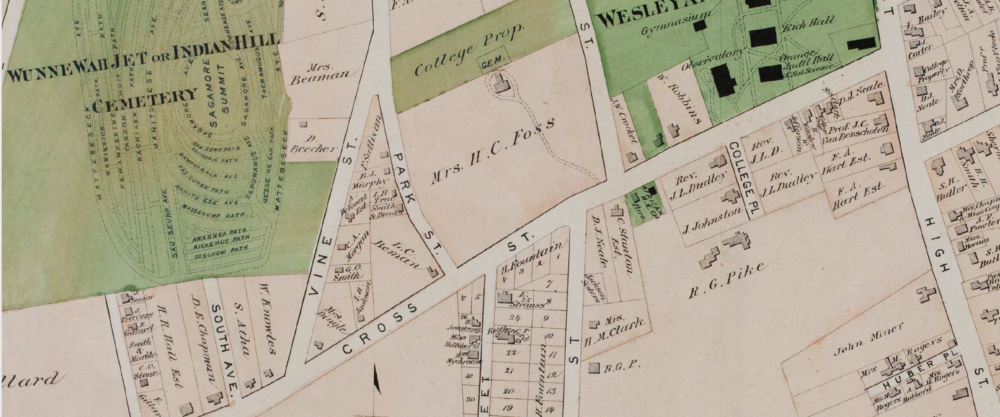With his manumission, Cesar named himself Cesar Beman, for he aspired to explicitly claim his right to “be a man.” This is the start of the Beman family, of whose members were active participants in many of the social and political activist movements of the 19th century.
After serving in the Revolutionary War, Cesar gained his right to be a free man in the early spring of 1781. He married Sarah Gerry later that year at Middle Haddam Church in Chatham, Connecticut. Cesar and Sarah gives birth to Jehiel, who is their only son. According to the government pension records, Sarah and Cesar both live in Colchester until they die in 1820 and 1821, respectively.
The relationship between the Beman family and Middletown begins when Jehiel Beman moves to Middletown from Colchester after being appointed the first pastor of the Cross Street A.M.E. Zion Church. As a leader of the third A.M.E. Zion Church ever to be established in the country, Jehiel was very concerned not only with the spiritual elevation of his community but also with the social, political, and economic advancement of African Americans. Hence, under the leadership of Jehiel, the Church largely became an institution that not only served a religious purpose but also came to be a platform for social and political activism.
Besides his commitment to the Church, Jehiel inherited Cesar’s occupation as a shoemaker. His shop on Main Street became one of the financial funding for the Church’s various projects that were experiencing financial crisis.
After a short move to Boston to serve as a pastor in the Boston branch of the A.M.E. Zion Church, Jehiel and Nancy, his second wife, returns to Middletown in 1844. With the family’s return to the neighborhood, two of their children Leverett and Amos followed their father’s footsteps and actively participated in religious, social, and political movements within Middletown.
Of the children, Leverett was most like Jehiel, for he trained himself to be a shoemaker. Hence, shoemaking became a family business for the Beman family and a constant source of financial aid for the A.M.E. Zion Church. On the other hand, rather than carrying on the family business in Middletown, Amos became a minister of the Temple Street African Church in New Haven. As a leader, he was also very interested in the power of journalism. Since he believed in the power of writing, he heavily contributed to several black newspapers, aspiring to deliver and spread messages of uplift throughout their communities that underscored economic and social advancement as well as proper Christian behavior.
Building on each other’s achievements and striving toward social betterment of the minority population, the Beman family along with their spouses were active and central figures in various political movements, including the anti-slavery movement.
To read more on Jehiel click here.

